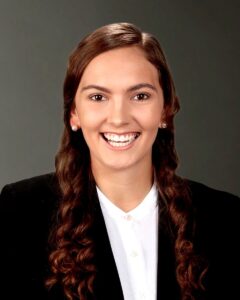Taking the Path Less Traveled (Part 2)
Category : PROspective
In the second of two segments on working in consulting after an epidemiology degree, Haley Adrian discusses what her role in consulting looks like and how she uses the skills she learned at RSPH in her new field.
The Role
As I’ve settled into my role at DHG over the past two years, I’ve learned about lot about myself, and particularly about the importance of those transferrable skills. Even though I don’t actively practice any of the formulas or work in the coding systems I learned at RSPH, nor do I directly impact public or individual health, I do use my strengths in analytics and my passion for connecting with people.
One of my primary roles is updating and navigating complex financial models and pricing models in Excel. For example, when our team is producing a financial feasibility study for a senior living client, we create a dynamic financial model in Excel that includes client’s forecasted financial statements for the next x years (usually 5-6). The model could include numerous sheets, many of which are interconnected and all of which feed into the client’s financial statement. The financial statements are influenced by an array of variables, including operating revenues and expenses, entrance or rental fees, bond financing, community occupancy and healthcare utilization assumptions, the list continues. Similar to how during the SAS coding process you must be aware of exactly what your code lines are saying and how they’ll influence your data, the operator of these financial models in Excel must use great caution when updated cell links or manipulating formulas.
As another example, if I am working with a hospital client that is looking to update their pricing structure, I will work in an Excel model with upwards of tens of thousands of rows and a range of column considerations. The first step in that process is cleaning the data, like what you may do as a first step during a thesis. After cleaning the data, I start to gain an understanding for the existing pricing structure – What rules are in place for certain categories of charges? What charge codes were historically manually priced? What is the previous mark-up from CMS? Next steps include setting up formulas that pull data and assumptions from CMS and other standards, as well as the hospital’s strategic priorities. For example, the hospital may be interested in applying a variety of mark-ups to their prices based on charge category. Between modeling existing prices and testing proposed prices, as well as communicating with the client, these types of engagements can take quite a bit of analytics skills, strong communication skills, and project management, all of which were enhanced during my time at RSPH.
As alluded to, I have also assumed an auxiliary role within my team and the Firm – From helping plan conferences, to writing whitepapers, and even implementing Firm-wide diversity and inclusion initiatives, I’ve been able to maintain a close connection to people and make an impact on their experiences with DHG. I’m very thankful for this part of my “job” and grateful for my performance coach and Partner supporting these auxiliary tasks that energize me and make my job so fun.
Closing Thoughts
As someone who took the road less traveled, I cannot emphasize enough how important it is to understand and utilize your passions and strengths, even if they do not align directly with your background or education. If this is the route you take, there may be a hefty learning curve, so as you are challenging yourself, don’t forget to give yourself grace. If you use the resources around you, put your best foot forward, and continue to escalate the skills you need to succeed, you will find yourself right where you are supposed to be. For me, two years after making a bit of a pivot, I can say confidently I’ve found the right career.

Haley Adrian, MPH (EPI 2020) is currently a consultant at Dixon Hughes Goodman, LLP. DHG is a top 20 professional services firm, offering expertise in Assurance, Tax, and Advisory across all 50 states and internationally. If any current students or alumni are interested in connecting with Haley regarding professional insights or career opportunities at DHG, please contact her at Haley [dot] Adrian [at] dhg [dot] com.
Featured Image by Holly Mandarich on Unsplash
